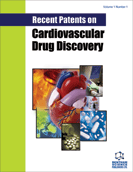Abstract
Inhibition of acetyl-CoA carboxylase (ACC), with its resultant inhibition of fatty acid synthesis and stimulation of fatty acid oxidation, has the potential to favorably affect, in a concerted manner, a multitude of the cardiometabolic risk factors associated with diabetes, obesity, and the metabolic syndrome. Studies in ACC2 knockout mice and in experimental animals treated with isozymespecific antisense oligonucleotides or with isozyme-nonselective ACC inhibitors have demonstrated the potential for treating metabolic syndrome through this modality. Co-crystallization of the biotin carboxylase and carboxyltransferase domains of eukaryotic ACC in the presence of substrates and inhibitors has revealed characteristics of the catalytic center that can be exploited in drug discovery. A variety of structurally diverse, mechanistically distinct classes of ACC inhibitors have been disclosed in the scientific and patent literature. Isozyme-nonselective ACC inhibitors may provide the optimal therapeutic potential. However, demonstration of the full potential of isozyme-selective inhibitors, once identified, should reveal advantages and liabilities associated with single isozyme inhibition.
Keywords: Acetyl-CoA carboxylase, enzyme inhibition, fatty acid synthesis, fatty acid oxidation, metabolic regulation, diabetes, obesity, metabolic syndrome, heart disease
 18
18


